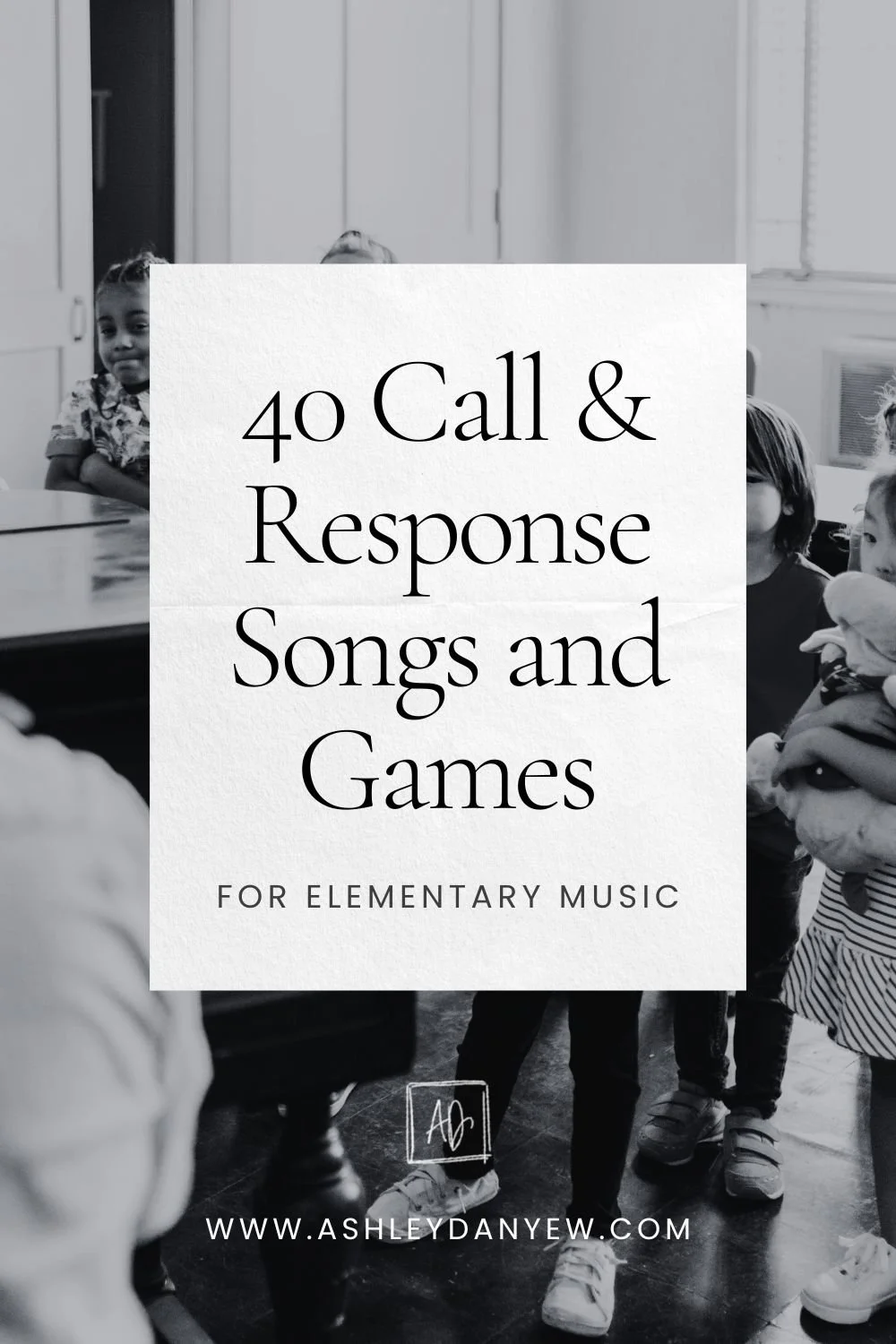Call and response is a form of musical dialogue: Someone sings or plays a musical phrase, and someone else (or a group of people) responds, either echoing the phrase back or providing a musical answer.
Call and response stems from a variety of musical traditions, including African, Cuban, folk, and early church music (think cantor and congregation). (source)
Call and response can be a useful teaching tool, as it gives young children an opportunity to listen, imitate, explore the voice, and gain confidence in their singing.

















